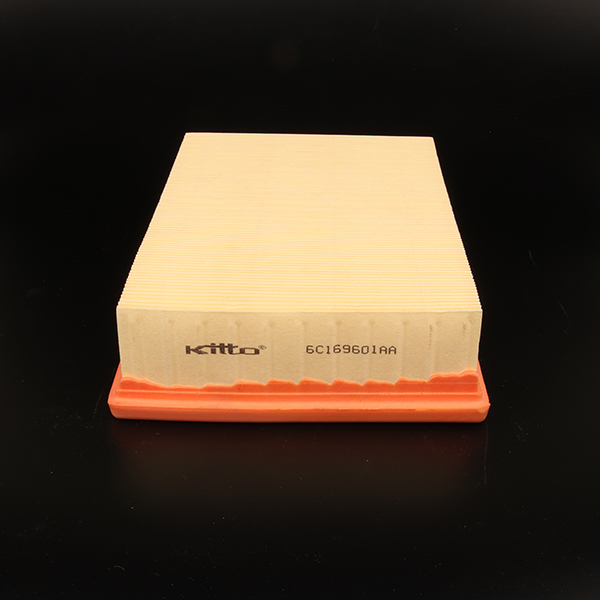Nov . 22, 2024 22:46 Back to list
glass fiber filter products
The Significance of Glass Fiber Filter Products in Modern Filtration Solutions
In today's world, where air and water quality has become a paramount concern, glass fiber filter products have emerged as essential components in various filtration applications. Renowned for their superior efficiency and durability, these filters are widely utilized in industrial, commercial, and environmental settings. Understanding the unique properties and advantages of glass fiber filters can shed light on their indispensable role in maintaining cleaner environments.
What Are Glass Fiber Filters?
Glass fiber filters are made from fine strands of glass fibers, woven together to create a porous medium that captures particulate matter from air, gases, and liquids. These filters exhibit a high surface area, allowing them to trap a significant volume of particles while maintaining good airflow or fluid flow.
Key Advantages of Glass Fiber Filters
1. High Filtration Efficiency Glass fiber filters are capable of capturing particles as small as 0.3 microns with high efficiency. This makes them ideal for applications where the removal of fine particulates is critical, such as in HVAC systems, industrial processes, and laboratory environments.
2. Chemical Resistance Glass fibers demonstrate excellent resistance to a wide range of chemicals, including acids and solvents. This characteristic makes glass fiber filters suitable for use in industries where exposure to harsh chemicals is common, such as chemical manufacturing and environmental monitoring.
3. Thermal Stability Unlike many polymer-based filters, glass fiber filters can withstand high temperatures without degrading. This thermal stability allows for their use in high-temperature applications, such as engine filtration and industrial exhaust systems.
4. Cost-Effectiveness While the initial investment may be higher than some traditional filters, the longevity and efficiency of glass fiber filters result in lower overall maintenance costs. Their extended lifespan and reduced need for frequent replacements make them a cost-effective choice in the long run.
glass fiber filter products

5. Environmentally Friendly Glass fiber filters are often recyclable, contributing to sustainable practices in filtration. When disposed of properly, they have a reduced environmental impact compared to synthetic filters that may not degrade naturally.
Applications of Glass Fiber Filters
The versatility of glass fiber filters allows them to be used across a wide range of industries
- Air Filtration In both residential and commercial buildings, glass fiber filters are commonly used in HVAC systems to capture dust, pollen, and other airborne particles. Their effectiveness in improving indoor air quality is a significant advantage.
- Water Treatment These filters play a vital role in municipal water treatment processes, ensuring that harmful particles and contaminants are removed before water is distributed to households.
- Industrial Filtration In manufacturing settings, glass fiber filters are utilized for process air filtration, protecting sensitive equipment from dust and particulates that could hinder operations.
- Laboratory Use In scientific research and laboratories, glass fiber filters are essential for ensuring the purity of samples, as they effectively retain contaminants that could interfere with experiments.
Conclusion
Glass fiber filter products represent a crucial technology in the field of filtration. Their high efficiency, chemical resistance, thermal stability, and cost-effectiveness make them an ideal choice for a multitude of applications, from industrial sectors to everyday air and water purification. As environmental concerns continue to rise, investing in advanced filtration solutions like glass fiber filters is not just a smart choice, but a necessary step towards achieving cleaner air and water for future generations. With ongoing advancements in filtration technology, the role of glass fiber filters is likely to expand, further solidifying their importance in maintaining a sustainable and healthy environment.
-
Active Carbon Air Filter for Air Purifier – Superior Odor & Allergen Removal
NewsJul.24,2025
-
High-Efficiency Active Carbon Air Filter for Air Purifier | Odor & Allergen Removal
NewsJul.23,2025
-
Active Carbon Air Filter for Air Purifier – High Efficiency Filtration Solution
NewsJul.22,2025
-
Durable Sintered Porous Metal Filter Tube Cup & Machines
NewsJul.22,2025
-
Effective Active Carbon Air Filter for Purifiers | Eliminate Odors
NewsJul.21,2025
-
PLJT-250-25 Full-auto Turntable Clipping Machine | Efficient Automation
NewsJul.20,2025
